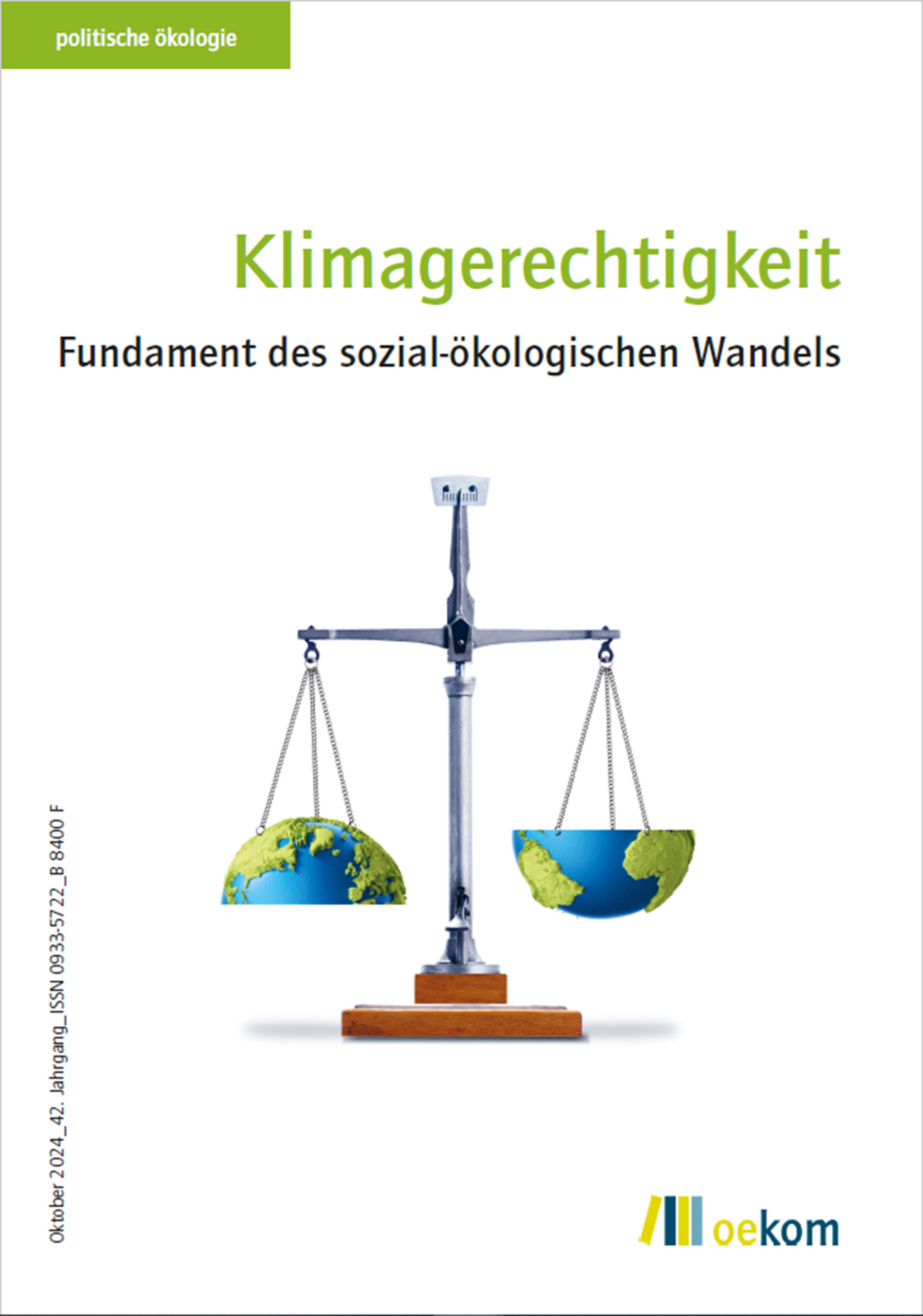
Climate justice: The foundation of socio-ecological change
Volume 178 of "politische ökologie" published by oekom
(full version only available in German)
properties.trackTitle
properties.trackSubtitle
01 October 2024
Editorial - Anke Oxenfarth
The English version of the essay "Africa’s efforts to combat the climate crisis" by Victoire Ghafi Kondi Akara is available here:





